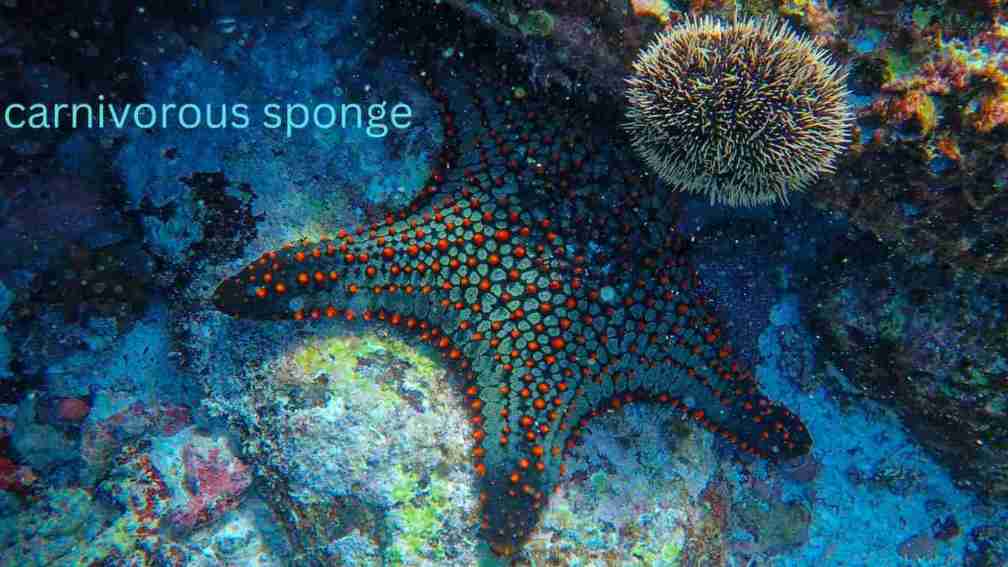Overview
In a groundbreaking find, scientists have identified six new carnivorous sponge species that prey on Australia’s east coast. This stunning find not only contributes to the knowledge of ocean diversity, but also has one asking how exactly these alien-looking creatures are influencing the oceanscape. As researchers begin to crack the sponges’ codes, they are also further explaining their place in marine science and conservation.
Australian waters have yielded a remarkable discovery: marine biologists have uncovered six new species of carnivorous sponges from the family Cladorhiza. Utilizing a remotely operated vehicle (ROV), researchers explored the western continental margin of Australia, revealing an unprecedented array of deep-sea creatures.
Animal-feeding sponges, or so-called “carnivorous filter feeders,” have already been puzzling scientists regarding their remarkable method of feeding for quite some time. Their comparative sponges that otherwise are more regular run-of-the-mill sponges filtering meals in the forms of plankton and bacteria also play the function of actually consuming and swallowing small creatures like zooplankton and smaller crustaceans by specially provided units in the forms of spicules. The new study, undertaken by University of Queensland researchers, indicates a great diversity of the sponges, which were found to occur to a depth of up to 300 meters off the Great Barrier Reef and the surrounding coastline.
Lead researcher Dr. Emily Harris was thrilled at the find and added, “This is a step of huge proportion from anything we ever knew about underwater culture. These sponges redefine our conventional image of what a ‘sponge’ is, and all are critical components in the oceanic food web.”
The Discovery
The discovery, detailed in a recent study, sheds light on the remarkable diversity of these carnivorous sponges thriving in the deep-sea environments off the Australian coast (Ekins et al., 2020). The new species were collected during the 2017 RV Investigator expedition, which focused on exploring the bathyal and abyssal zones of the region. (Ekins et al., 2020) Not only do these findings expand our understanding of the distribution and ecological roles of carnivorous sponges.
Scientists collected specimens in a May 2023 expedition with help from high-technology underwater observing gear and remote-controlled vehicles exploring uncharted areas. “We were amazed at the variety we found in this small patch,” Dr. Harris said. “Every species had seemed to have adapted itself into its micro-environment, and there was the proof of great resilience and sophistication of life in the sea.”
The six newly identified species are:
- Abyssocladia janusi
- Abyssocladia johnhooperi
- Abyssocladia aurora
- Axoniderma challengeri
- Cladorhiza vanessaekins
- Nullarbora ningalooa
These six new sponge species are of special interest due to the potential they have to affect marine ecosystems. As carnivorous animals, they have the potential to have huge effects on the small animal population in the sea and thus the dynamics of the food web. This alone is a sufficient reason for their conservation habitat to be prioritized, which currently is under threat from climate change, pollution, and overfishing.
These carnivorous sponges were collected from two deep-sea locations in Western Australia, spanning almost 1,000 kilometers. The Bremer Canyon system yielded Abyssocladia janusi, while Cape Range Canyon revealed the remaining five species.
Cladorhizidae: The Carnivorous Sponge Family
Cladorhizidae sponges are notorious for capturing prey using specialized structures. Typically found at oceanic ridges and seamount systems worldwide, these deep-sea sponges have fascinated scientists with their unique characteristics.
Significance of the Discovery
This breakthrough brings the known fauna of Cladorhizidae in Australian waters to 41, significantly expanding our understanding of these enigmatic creatures. The discovery:
- Enhances knowledge of Cladorhizidae diversity and distribution.
- Highlights the importance of exploring deep-sea ecosystems.
- Provides insights into the evolution of carnivorous sponge adaptations.
Expert Insights
The discovery of these new species underscores the vast, unexplored biodiversity of our oceans, said [Dr.Jim Thompson]. “Further research will unravel the secrets of these fascinating creatures and their role in the marine ecosystem”.
Dr. James Tilman, a marine ecologist at the Australian Institute of Marine Science, explained that more research is needed to study these sponges. “We have only just begun to understand how these animals function in their ecosystems. If we are to maintain marine biodiversity, we should invest in a research program in these unstudied animals and their habitats.”
Though the find is to be greeted by scientists, it also evokes concerns over the fate of such delicate ecosystems. The constant dangers looming over such an ecosystem at the behest of man guarantee that something needs to be done about it sooner rather than later. As coastal development and pollution are set to continue to rise, the conservation of the habitat of these newly found species of sponges is more essential than ever before.
For example, the discovery of six new carnivorous sponges off the Australian coast is an eye-opener to the breadth of the ocean and the unexplored richness of life. The more the experts know about the bizarre creatures in this sense, the more vital information they provide about how the sponges are helping ecologically and the state of our sea. It is of the highest importance that sea animals should be saved, not only for the benefit of the survival of such enormous animals but for the balance of life in the seas of the world. As aptly quoted by Dr. Harris, “Every species, no matter how small, plays a role in the intricate tapestry of life beneath the waves.”
Conservation Implications
As we continue exploring and discovering new species, we must prioritize conservation efforts to protect these unique ecosystems and their inhabitants.
Conclusion
In conclusion, the ecological roles of carnivorous sponges in the West Pacific, but they also highlight the immense potential for future exploration and research in these poorly studied deep-sea ecosystems, which continue to yield surprising and significant discoveries about the complexity and resilience of marine life. One of the key insights from this study is the remarkable diversity and adaptation of carnivorous sponges in Australian waters. The researchers identified six new species, each with distinct morphological features and genetic profiles, demonstrating the remarkable breadth of these predatory sponges’ evolutionary trajectories.
You may also like to read: Can quantum batteries discharge more than they store?

